A modicum of truth
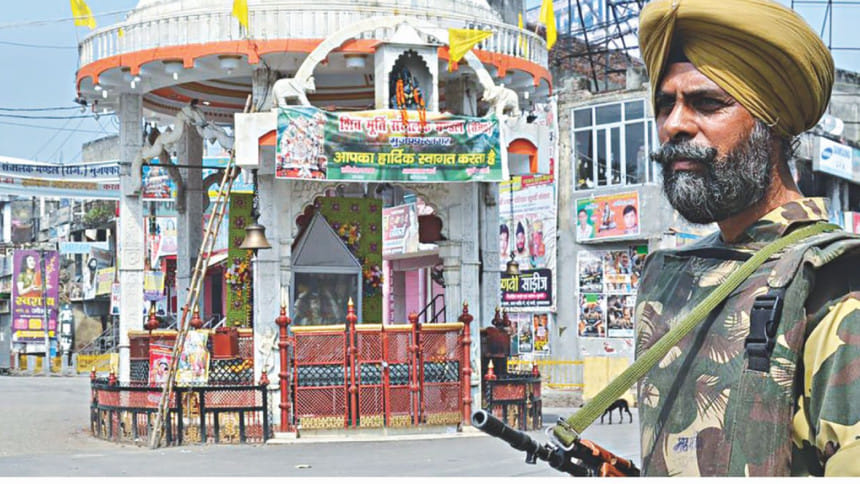
I feel honoured that Prime Minister Narendra Modi has taken notice of my criticism. Indeed, he praised me and said: "I respect veteran journalist Kuldip Nayar ji, he fought for freedom during emergency, he maybe a harsh critic of us but I salute him for this." The prime minister and I are on the same page when it comes to the criticism of the emergency imposed by Indira Gandhi, the then prime minister.
Where we differ is the shape of society we want. He belongs to the Bharatiya Janata Party (BJP), a political organ of the RSS, which wants to establish a Hindu Rashtra in the country, and I, a pluralistic society. His party divides people and I believe in what Mahatma Gandhi taught us about a multi-cultural nation where people of all religions can live together, without any fear.
I recall that Gandhiji in his prayer meetings used to have recitations from the Quran along with the Gita and Bible. And if someone objected to this, he would not hold the meeting. The Mahatma's philosophy of pluralism was the nation's ethos. Prime Minister Modi respects Gandhiji and says "Sab ka saath, sab ka vikas." But his party's goal is to the contrary.
Modi disappoints many when he goes to Nagpur for exchanging views with the RSS high command. The Muslims are particularly peeved because they tend to see a society divided on the basis of religion, more so after the demolition of the Babri Masjid.
Happily, Modi has kept veteran BJP leaders like L K Advani and Murli Manohar Joshi at a distance from the affairs of the party. Modi's style of governance is also different from these leaders. But the direction to which he wants to take the nation is clear. A diluted form of Hindutva has spread throughout the country.
The prime minister has to ask himself whether this scenario is good for the people. A multi-cultural society has to stay pluralistic because that is what fits into the scheme of India. When key positions in education or other affairs of government are given to trusted RSS men, the faith of liberals, the Muslims and others living on the edge is shaken. Modi has to give them confidence so that their contribution is considered equally important.
I find the minorities feeling insecure. They constitute one-fourth of the nation. The then Muslim League poisoned the minds of its community and created a situation where even the drinking water was divided into two separate pitchers, one marked as for the Hindus and the other for the Muslims at railways stations.
The Hindus were happy that the North West Frontier Province, under the influence of Khan Abdul Ghaffar Khan, was with them. But otherwise, they did not give much leeway to the Muslims. The Congress, which had Maulana Abul Kalam as one of its top leaders, threw its lot with the Hindus. Yet, the Muslim League did not go away from the path of division on the basis of religion.
Unfortunately, this affected the students who ate from different kitchens and preferred to form their own circle. I recall that in the last year of my stay at the law college in Lahore, Qaid-e-Azam Mohammad Ali Jinnah addressed the students. True, he emphasised that Hindus and Muslims were two nations but went on to exhort that they should stay together and develop the country. I expressed my doubt during the Q&A session and Jinnah assured us that India and Pakistan would be best of friends.
Today, there is very little contact between the two. It is just impossible to get a visa for Pakistanis to come to India and Indians to visit Pakistan. And my worst fears have come true. Many people on both sides believe that Kashmir is the impediment. Prime Minister Jawaharlal Nehru said that Kashmir represented only the anti-India feeling. If it had not been there, Pakistan would have dug up into some other issues to hate India.
Coming back to Prime Minister Modi, he appeared to have tried his best to foster relations with Pakistan soon after he took over. He even broke his journey at Lahore to convey his good wishes to then Prime Minister Nawaz Sharif while returning from Russia and Afghanistan. This was the first visit by an Indian prime minister in a decade. During the meeting of the two leaders, they had even discussed Kashmir.
In the last year of his term, Modi is not likely to take any initiative on Pakistan lest his government should start another debate, which may or may not help. His concentration is more likely to be on the states below the Vindhyas because the BJP looks quite strong in the Hindi-speaking states. The danger he faces is that the power is concentrated on him which means one-man rule.
Indira Gandhi was swept out of power when people found that she, too, had become a one-person governance. Unfortunately, there was no other tall leader to challenge her authority. Nor did she allow anybody to grow. The situation today is somewhat similar in the BJP. There is nobody to confront Modi. This is his strength as well as his weakness.
Whether the prime minister would be able to stitch loose ends before the polls is anybody's guess. Modi is riding a horse which he cannot dismount before the elections. He would perforce depend on the RSS and its cadre to deliver the goods. Modi may be planning different strategies to fight the polls and it is clear that he would be the party.
It looks as if the other parties going to come together and form some kind of a federal front. Its endeavour would be, as Congress leader Sonia Gandhi has said, to stop the return of Modi. At this juncture, Modi would need the party the most. But how could that be possible when he himself has become the BJP?
Kuldip Nayar is an eminent Indian columnist.
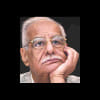
 For all latest news, follow The Daily Star's Google News channel.
For all latest news, follow The Daily Star's Google News channel. 

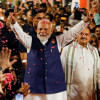
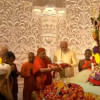
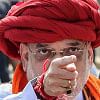
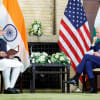



Comments